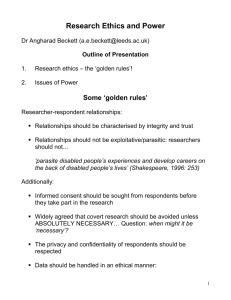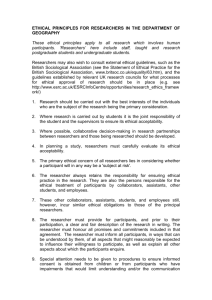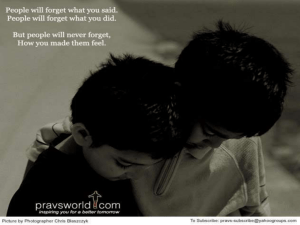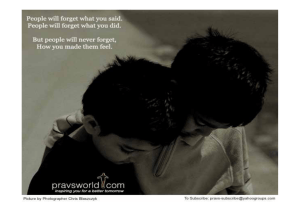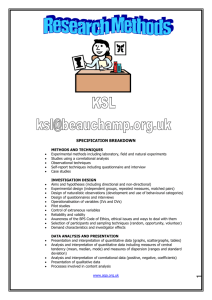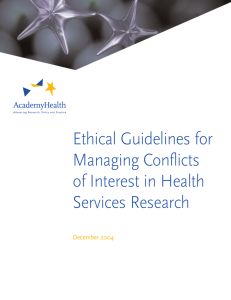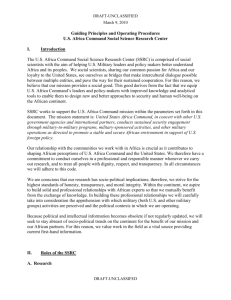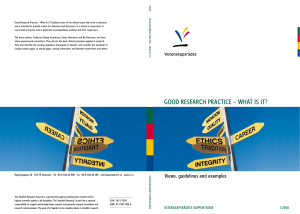Notes from Research Ethics Workshop (Feb 06)
advertisement
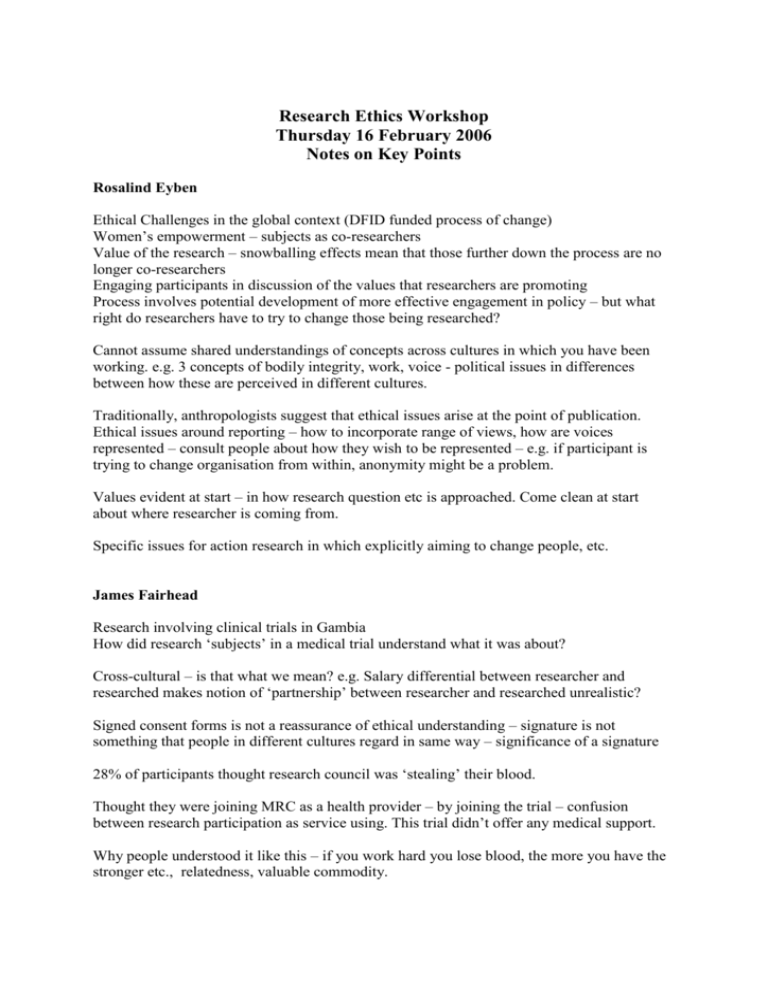
Research Ethics Workshop Thursday 16 February 2006 Notes on Key Points Rosalind Eyben Ethical Challenges in the global context (DFID funded process of change) Women’s empowerment – subjects as co-researchers Value of the research – snowballing effects mean that those further down the process are no longer co-researchers Engaging participants in discussion of the values that researchers are promoting Process involves potential development of more effective engagement in policy – but what right do researchers have to try to change those being researched? Cannot assume shared understandings of concepts across cultures in which you have been working. e.g. 3 concepts of bodily integrity, work, voice - political issues in differences between how these are perceived in different cultures. Traditionally, anthropologists suggest that ethical issues arise at the point of publication. Ethical issues around reporting – how to incorporate range of views, how are voices represented – consult people about how they wish to be represented – e.g. if participant is trying to change organisation from within, anonymity might be a problem. Values evident at start – in how research question etc is approached. Come clean at start about where researcher is coming from. Specific issues for action research in which explicitly aiming to change people, etc. James Fairhead Research involving clinical trials in Gambia How did research ‘subjects’ in a medical trial understand what it was about? Cross-cultural – is that what we mean? e.g. Salary differential between researcher and researched makes notion of ‘partnership’ between researcher and researched unrealistic? Signed consent forms is not a reassurance of ethical understanding – signature is not something that people in different cultures regard in same way – significance of a signature 28% of participants thought research council was ‘stealing’ their blood. Thought they were joining MRC as a health provider – by joining the trial – confusion between research participation as service using. This trial didn’t offer any medical support. Why people understood it like this – if you work hard you lose blood, the more you have the stronger etc., relatedness, valuable commodity. Why particular participants are selected – framing of relationship between researcher and researched in economically differentiated context means that MRC relying on signatures is of dubious ethical value. But would it be ethical not to conduct trials? Compliance issue – pressured to sign as seen as meeting national expectation Interplay between economics & culture Role of funders – poorly understood by participants? Violence – didn’t want this exposed Sara Humphreys Colonization of research approaches – 4 junior secondary schools in Botswana Anonymity – is this a Western construct – ethical conflict where promises are made to give feedback/voice/ etc to views that then can’t be delivered – conflict between individual and the community. Reciprocity – what if participants don’t want to be involved in reciprocal relationship – researcher benefits more than researched. Consent – who should have the right to agree or not? Issues raised in discussion Contractual issues – who owns the data? Intellectual property rights? When studying violence, ethical issues look very different. Richard Jolly Dominance of research – not just imperialism – where data are mined in developing countries by developed countries, exploitation of partners in developing countries. Meeting which identified the issues – why 30 years later things haven’t moved that far: 1. Lack of funding for third world research in universities 2. Bias in funding - Dominance of World Bank in Africa within neo-classical, Washington consensus paradigm. 3. Pressures of publish or perish in developed countries diminishes capacity to work collaboratively with researchers in developing countries.


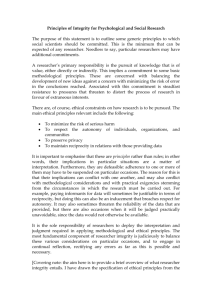
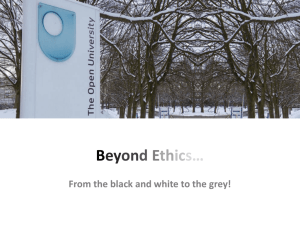
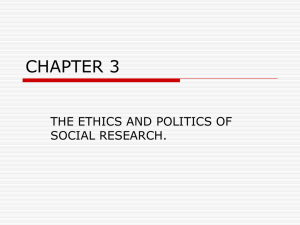


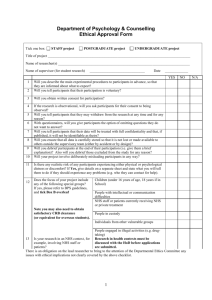

![ED635_Reading_Response_3_Ethics by Ron[1]](http://s3.studylib.net/store/data/007587603_2-ff38e4b9519d4d8243e60ed46e28ab92-300x300.png)
